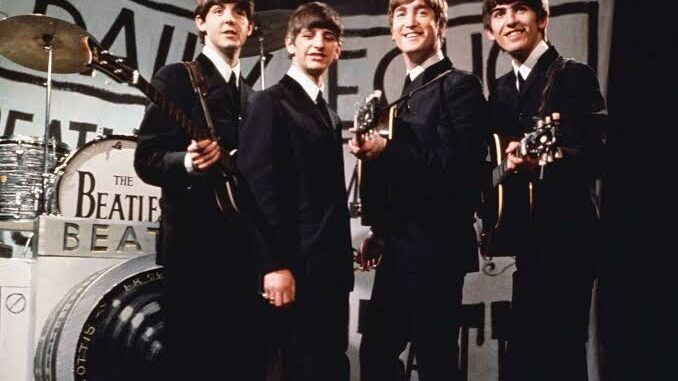
4 Beatles-esque Artists That Could Give the Fab Four a Run for Their Money
When it comes to the pantheon of rock royalty, The Beatles stand tall — arguably the most influential band in music history. Their catalog is unparalleled in its innovation, melodic brilliance, and cultural significance. Yet, while many artists have tried to emulate the magic of the Fab Four, only a rare few have come close to capturing that same spirit — and some might even argue they could give John, Paul, George, and Ringo a run for their money. Here are four Beatles-esque artists who, in terms of sound, innovation, and enduring appeal, could rival the legends themselves.
1. Electric Light Orchestra (ELO)
The Symphonic Successor
Led by Jeff Lynne, Electric Light Orchestra emerged in the early 1970s with an unmistakable mission: to pick up where The Beatles left off. That wasn’t just fan speculation — Lynne openly admired The Beatles and sought to fuse their melodic sensibilities with orchestral grandeur. The result was a sound that took the sonic experimentation of Sgt. Pepper’s Lonely Hearts Club Band and added layers of strings, synths, and harmonies that echoed Beatles-era psychedelia with an operatic twist.
Songs like “Mr. Blue Sky,” “Telephone Line,” and “Livin’ Thing” showcase ELO’s uncanny ability to merge complex arrangements with radio-ready hooks. The band’s Beatles-esque DNA is especially clear in Lynne’s vocal phrasing, chord progressions, and storytelling style. And Lynne’s later collaborations with George Harrison and his work with the Traveling Wilburys only reinforce that connection. In fact, many fans believe if The Beatles had continued into the 1980s, their evolution might have mirrored ELO’s.
2. Tame Impala
The Psychedelic Modernist
Fast-forward to the 2010s, and Kevin Parker — the mastermind behind Tame Impala — took up the mantle of Beatles-inspired innovation. While drawing from a range of influences, Parker’s work, particularly on albums like Lonerism and Currents, channels the dreamy, experimental aura of late-period Beatles albums. The multi-layered production, introspective lyrics, and boundary-pushing arrangements harken back to Revolver and Abbey Road.
What makes Tame Impala a modern Beatles-esque force is Parker’s fearless creativity. Much like the Fab Four evolved from mop-top pop to sonic pioneers, Parker has reshaped psych-rock with synth-heavy grooves, falsetto vocals, and expansive production — all created primarily by himself in a home studio. It mirrors the self-contained genius of McCartney or Lennon’s post-Beatles solo work, but filtered through a 21st-century lens.
He’s not simply replicating The Beatles — he’s taking their experimental spirit and pushing it into new, genre-blurring territory. If The Beatles had been born 40 years later, they might’ve sounded a lot like Tame Impala.
3. Oasis
The Britpop Saviors
When Oasis burst onto the scene in the 1990s, there was no mistaking their influence. From their melodic sensibilities to their brash confidence, the Gallagher brothers wore their Beatles obsession like a badge of honor. In fact, Noel Gallagher once claimed he was reincarnated from John Lennon — a bold statement, but one that fueled the band’s mythos.
Songs like “Don’t Look Back in Anger,” “Live Forever,” and “Champagne Supernova” brim with Beatles-inspired chord progressions, emotional depth, and big choruses that seem destined to echo across stadiums. The Beatles’ influence is not only evident in their sound but in Oasis’s entire approach — the swagger, the look, the belief that music could change the world.
While Oasis didn’t have the same level of musical versatility as The Beatles, their impact on British culture in the ’90s was massive — similar to what the Fab Four did in the ’60s. They revived interest in British rock at a time when it was dominated by American grunge, and their connection to The Beatles wasn’t just sonic — it was spiritual.
4. The Flaming Lips
The Experimental Wild Cards
If there’s one modern band that mirrors The Beatles’ fearless experimentation, it’s The Flaming Lips. Over their long and unpredictable career, Wayne Coyne and company have veered from lo-fi punk to lush orchestral pop to mind-bending psych-rock. Their magnum opus, The Soft Bulletin (1999), is often compared to Pet Sounds and Sgt. Pepper for its emotional scope and musical innovation.
Like The Beatles, The Flaming Lips treat the studio as an instrument, constantly exploring strange textures, surreal themes, and unorthodox song structures. They don’t just write songs — they create sonic landscapes. Tracks like “Do You Realize??” and “Race for the Prize” exude a similar warmth and humanity found in Beatles classics like “Let It Be” or “Here Comes the Sun.”
But what truly puts them in the same orbit as the Fab Four is their ability to evolve. Just as The Beatles transformed dramatically over their short lifespan, The Flaming Lips have never been content to stay in one lane. Each album feels like a new chapter — risky, emotional, and refreshingly strange.
Could Any of Them Truly Compete With The Beatles?
Let’s be honest — toppling The Beatles from their throne is nearly impossible. Their cultural impact, innovation, and sheer volume of iconic songs make them a once-in-a-generation phenomenon. But these four artists have something undeniably Fab Four-like in their DNA. Whether it’s ELO’s melodic majesty, Tame Impala’s psychedelic textures, Oasis’s Britpop bravado, or The Flaming Lips’ boundless experimentation, each artist reflects different sides of the Beatles’ genius.
They don’t need to “replace” The Beatles — no one can. But they do carry the torch forward, evolving the legacy while making their own unique contributions to music history.
And for fans who love the magic of “A Day in the Life,” the rebellion of “Revolution,” or the dreamy charm of “Across the Universe,” these artists offer something that feels beautifully familiar, yet entirely their own. In a world still spinning to the soundtrack of the ’60s, that’s more than enough to give the Fab Four a run for their money.
Be the first to comment